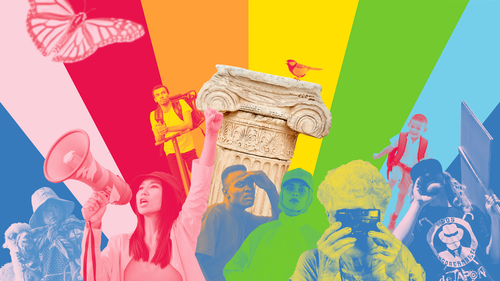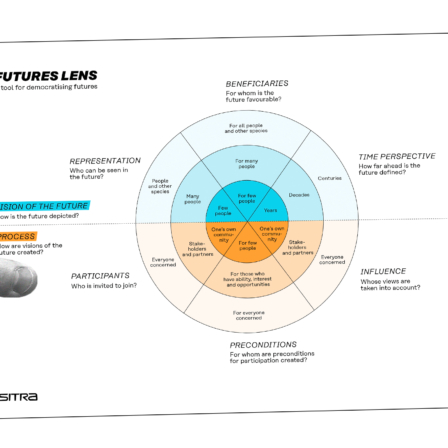What are our visions of the future and who defines them? Whose views are they based on and what gets left out?
“These are essential questions because the future is shared, but not everyone’s voice is heard in debates about the future,” says Mikko Dufva, Senior Lead of Sitra’s Foresight Team.
He stresses that we are living in a period of transition characterised by surprises and discontinuities. The environmental sustainability crisis and other challenges we face are forcing us to renew and change course.
“We see that the old visions of the future no longer serve us, and that the future will inevitably be different. That’s why there is a great and immediate need for a critical review of the power to define futures.”
The Foresight Team has published a memorandum (in Finnish) to explore the concept of power and futures. The power to define futures is one way of exercising power. It is the power to define visions of the future, in other words, what is considered possible or desirable in the future. Our views of the future influence the choices we make today, and that’s why it’s important to pay attention to the power to define futures.
“The subject is not new, although the concept may be,” says Dufva. The power to define futures is linked to many themes studied in futures research, such as narratives, engagement and the preconditions for participation.
“We have been inspired by many organisations and people who have done great work in this area, raising the issues of participation, diversity of voices and inclusion. For example, Nesta, UN Global Pulse, Pupul Bisht, Krizna Gomez and Monika Bielskyte, to name but a few.”
Futures Lens inspires and provokes to think about power
The power to define futures is an analytical concept, but democratising futures is normative, informed by ideas of fairness, equality and greater engagement.
“We have been thinking a lot about how to approach the power to define futures in practice. To this end, we are offering both a tool and a partnership programme to experiment with means to democratise futures,” says Dufva.
The tool – the Futures Lens – helps to explore six dimensions of the power to define futures and the choices involved. For instance, how is the future represented, and for whom is it favourable? Over what period of time is the future reviewed and how does this relate to the power to define futures? How are visions of the future created and who is involved in their creation? How can we strengthen the preconditions for the participation of different people? The tool is intended to guide discussions aon this topic and to help identify the link between democratising futures and the power to define futures.
This might interest you
The partnership programme, on the other hand, invites teams of 2–3 people, based in Finland to carry out a real-life experiment in democratising futures. Sitra will provide the teams with support, training and funding. The programme starts in the summer of 2024 and runs until early 2025.
“Building more inclusive futures is a continuous learning process. That is why this year we are focusing on exploration and experimentation with our partners. Next year, we hope to share what we learn from the experiments, also with our international audience.”




Recommended
Have some more.
Futures Lens – a tool for democratising futures
Power to define futures